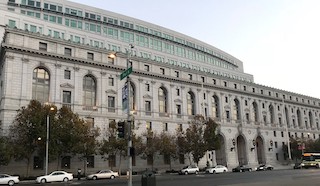When Americans travel overseas, we enjoy some comfort in knowing there are international treaties in effect that protect our rights, for example, if we are arrested in France, Cambodia or some third-world country.
Why This Article Matters: The Vienna Convention may apply in an arrest when the arrestee is not a U.S. citizen. When this happens, law enforcement must advise the arrestee within his “arrest, booking and detention” that he or she has the right to have their consulate notified of the arrest.
Americans are often quite aware that the United States has taken measures to ensure our citizens are protected with certain rights, even outside the United States. For example, during the Gulf War, U.S. Servicemen were assured that the Hague Convention governed their treatment and gave them some protection of their rights if they became prisoners of war by Iraqi agents.
One of such laws is the Vienna Convention on Consular Relations, also known as the Vienna Convention. It was enacted on April 24, 1963 and can be read at 21 U.S.T. 77, T.I.A.S. No. 6820.
The Vienna Convention requires that law enforcement officers advise arrested foreign nationals “without delay” that they have the right to have their consulate notified of their arrest. Vienna Convention, supra, art. 36, par. 1(b), at p. 101 (Article 36); see § 834c, subd. (b).
Should the arrestee request consular notification, the law enforcement officer must promptly inform the consulate of the arrest (Article 36, at p. 101). These requirements of the Vienna Convention were enacted as state statutory law in 2000, but the California Legislature did not specify a remedy for their violation (§ 834, see Comment, A Proposal for U.S. Implementation of the Vienna Convention’s Consular Notification Requirement (2013) 60 UCLA L. Rev. 1324, 1366).
Section 834c provides that any “known or suspected foreign national “ must be informed of the right to consular notification within two hours of his or her arrest, booking and detention. People v. Leon (2020) 8 Cal.5th 831, 845 (quoting § 834c, subd. (a)(1)).
How this applies in California when a person is arrested in California was put to the test in the recent Supreme Court case of People v. Eduardo David Vargas, a case that arose out of Orange County Superior Court. The ruling was recently (July 13, 2020) published at 2020 DJDAR 7218.
 CA Supreme Court San Francisco
CA Supreme Court San Francisco
Vargas, who was not a U.S. citizen, was convicted of one count of first-degree murder (Penal Code § 187(a)), six counts of robbery (Penal Code §§ 211, 212.5(c)), one count of attempted robbery (Penal Code §§ 664, 211), two counts of active participation in a criminal street gang (Penal Code § 186.22(a) (defined at the time as “street terrorism”)), and one count of possessing a firearm while on probation (former Penal Code § 12021(d)). The jury also found true a robbery-murder-special circumstance allegation (Penal Code § 190.2(a)(17)(A)).
The People alleged as well, and the jury found true, allegations that defendant personally discharged a firearm causing death during the robbery murder (Penal Code § 12022.53(d)), and that the crimes were committed with the intent to promote a criminal street gang.
After a penalty trial, the jury returned a verdict of death. There was an automatic application to modify the verdict under Penal Code § 190.4(e), which was denied by the trial court. The appeal was automatic to the California Supreme Court, which affirmed the verdict.
Mr. Vargas appealed the underlying conviction on many grounds. One of the grounds was the judge erred by denying his motion for new trial. This motion argued that because he was not a U.S. citizen, he was a Mexican national and therefore, Orange County Sheriffs were obligated to notify Mexican consulate officials following his arrest.
Mexican consular officials, however, did not become aware of defendant’s case until after defendant was convicted and the jury recommended a death sentence.
However, about twelve hours after he was arrested, an Immigration and Naturalization Service (INS) official came to the jail and determined he was a lawful, permanent resident. The INS official advised him of his rights to counsel and consular services in connection with his immigration proceedings.
Mr. Vargas, nonetheless, argued in his motion for new trial and on appeal to the California Supreme Court that had the Mexican consulate been notified of his arrest, a consular official would have advised him, consistent with Miranda v. Arizona (1966) 384 U.S. 436, to exercise his Fifth Amendment right to silence. Instead, Vargas spoke with police.
Although he did not incriminate himself, he claims to have made statements he alleges were factually inconsistent with evidence introduced at trial. Had he remained silent, he argued, he was have felt more free to testify at trial. But because his statements to police contained factual inconsistencies, any testimony he might have given would be subject to impeachment.
The trial court ruled that the INS official visit to Mr. Vargas did not satisfy the Vienna Convention requirements, but “there was a technical violation of the Vienna Convention,” but there is no remedy for such a violation and Mr. Vargas did not demonstrate specific prejudice by being denied consular legal advice.
The California Supreme Court agreed that the link between Mr. Vargas’ statements to police and the lack on consular notice is very tenuous, so his “Article 36” claim fails.
We bring this article to the reader’s attention to show how such an argument was denied, so that if our client were to bring a similar claim, he or she should bring a stronger claim to avoid the problems with Mr. Vargas’ claim.
The citation for the California Supreme Court ruling discussed above is People v. Eduardo David Vargas (2020) 9 Cal. 5th 793, 265 Cal. Rptr. 3d 604, 468 P. 3d 1121.
For more information about Miranda issues, please click on the following articles:
 CA Supreme Court San Francisco
CA Supreme Court San Francisco